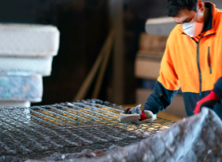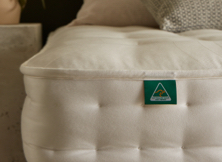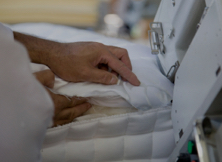Children, like adults, snore. According to the National Sleep Foundation approximately 10% of children snore most nights, so it comes as no surprise that you may have questions about your child’s snoring and sleep habits. Is their snoring normal? Is it harmful? At what point does it become a cause for concern?
Snoring. What is it?
Snoring is noisy breathing that results from the vibration of air going through the upper airway. In children it is often softer and quieter than the adult snore, but it can also be loud and disruptive.
Reasons for snoring
Snoring in children can result from a few different things. Firstly, there’s an anatomical component. The child could have been born with a small jaw or a small airway. As children already have narrow airways any small obstruction can result in snoring.
The most common reason children snore is enlarged tonsils and adenoids. A good indication of this is if your child is a mouth breather. This is not usual and you should consult your GP if your child is a habitual mouth-breather.
In the circumstance where your child has a cold or allergies this will inflame their nasal airway and will often require that they use their mouth for breathing. The already narrow airway can sometimes swell, and in some cases, mucus may sometimes act as an obstruction, leading to snoring. If this is the case resolution of the cold or allergy will resolve the snoring.
When snoring becomes a problem
In the cases of illness, snoring does not pose any major health issue. In most cases as your child’s illness passes so will the snoring. Loud and regular snoring in an otherwise healthy child can be a cause for concern as it disrupts sleep and can affect their daytime behaviour.
More seriously, snoring can be a result of a sleep disorder called sleep apnoea. Sleep apnoea is a condition where a person may stop breathing for short periods during sleep. Usually these breaks are due to a closing over of the upper airwaywhich is exacerbated by enlarged tonsils or adenoids. This is called Obstructive Sleep Apnoea.
If you see that your child is showing any of the following symptoms while sleeping, it’s important to visit your doctor:
- Sweating profusely
- Gasping for breath or struggling to breathe
- Notice abnormal patterns or pauses in their breathing
- Loud constant snoring
Look out for these daytime signs that snoring is becoming an issue:
- Have problems waking them up even when they’ve slept all night
- They are ‘tired but wired’
- Irritable behaviour
- Daydreaming
- Having a hard time paying attention in school
When you speak to your doctor you will need to report back what you have observed of the above or any other out-of-character behaviour from your child. They will be able to either refer you to a specialist or do some testing to advise if your child has sleep apnoea and what steps to take next.
Treatment
If the snoring is not related to any illness or conditions (eg. Sleep apnoea), get your child to sleep on their side, rather than their back. If it is in relation to obstructive or central sleep apnoea ask your doctor for a referral to a paediatric sleep specialist who will provide advice and options for you to pursue.
DISCLAIMER: This blog should not replace the counsel of a licensed medical professional. If you are worried about your child’s breathing, consult your doctor or medical physician immediately.
Checked for accuracy by Dr Carmel Harrington, A.H. Beard resident sleep expert


































